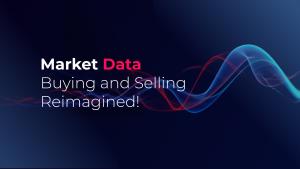Market Data online storefront sales may be the wave of the future
The emerging market data "consumer"
NEW YORK CITY, NEW YORK, USA, February 9, 2021 /EINPresswire.com/ -- The unique business challenges of 2020 aren’t going away but more change is inevitable as 2021 gets underway. In London, ASOS, the UK retailer is on the brink of capping one of the most tumultuous months in the history of the British high street sealing a deal worth nearly £300M to buy TopShop and Miss Selfridge.The high street has seen radical business change over the past decade, affected as so many others by the disruptive force of online shopping. With the added challenges of 2020, one could be forgiven for feeling nostalgia for how the world used to shop.
ASOS stands for “As Sold On Screen,” and offers an interesting perspective how a sharp, savvy retailer applies the power of screen visualization. In doing so, products come to life giving consumers a way to visualise and validate them similar to how Amazon and other online retailers specialize in selling business products created by others and sometimes offering a few of their own.
Harnessing the power of visualization, we as consumers are blessed with a plethora of visual tools to aid in making informed decisions before we act on the all-important “click” and purchase.
The visual buying cues available today are brilliantly subtle, elegant and ultimately powerful. It gives potential customers all the tools to distil action into a binary sales choice: yes or no. The white noise banter of “let me think about it,” or “give me more time” and “I’d like to see more” is removed from the equation. It’s a click and buy settlement rush culminating in a reward: yes or no.
In the wild and crazy world or market data many have been prophesying the advent of a new age of “Netflix for Market Data” or “Amazon for Market Data” but what does this mean? Is this merely a lazy analogous application of consumers voting with their feet and purchasing market data as a click to a shopping cart? While purchasing Market Data with a charge card is nothing new, it does pose an interesting question: just how far can market data mirror the online retail world?
If we strip market data down to a type of format, it’s CD media, all “ones and zeros.” At the end of the day, could market data follow other media like the music and film industry that have gone through massive transformative change? That’s a difficult question for the industry to grasp as music and film are almost exclusively affected by massive consumer market and entertainment trends.
While modern technology, mobile devices and streaming created the rocket fuel that led to new consumer option to gorge on music and film with instant satisfaction at far lower cost than ownership; this is not necessarily the same consumer market demographic that tends to purchase market data is it?
Time will soon tell if the creation of a market data “internet mall” with flexible technology and business options will be the rocket fuel changing the way market data is purchased. Government oversight may further play a significant role in pushing forward these new options as well. Either way, the existing market data marketplace is not likely to plod on using old shop-worn business models.
As the modern retail online process empowers the individual consumer and creates an almost instantaneous buying experience; corporate entities tend to have “purchasing” or “vendor management teams” to “hand break” major spending on market data.
At a recent market data conference, one market data manager noted it can require six months to plug in a new data content set on the trader’s desktop. The time duration has nothing to do with tardy technology. It’s typically the sundry legal checks and balances needed for licensing and rights management implementation. For heavily regulated businesses, licensing agreements can be a costly endeavour.
Perhaps the pursuit of the retail experience for the market data consumer makes a great deal of sense when looking at quicker and smarter ways to allow the consumer to validate the underlining content. If it is the consumer that is purchasing the data on behalf of someone else, you could have a totally different set of purchasing requirements.
This MarketDesk article is dedicated to the brave, overworked and often overlooked frontline workers who see to our safety and health care. We owe all of them a debt of gratitude.
MarketDesk features a one of a kind modern platform for content owners to distribute their financial data and content to a global community that prizes ease of use and mobility with cutting edge technology. Using MarketDesk, content owners can distribute their data to clients, employees and applications over the internet and mobile networks, under their brand and control.
Brice Hamon
Marketdesk
email us here
Visit us on social media:
Facebook
LinkedIn
Legal Disclaimer:
EIN Presswire provides this news content "as is" without warranty of any kind. We do not accept any responsibility or liability for the accuracy, content, images, videos, licenses, completeness, legality, or reliability of the information contained in this article. If you have any complaints or copyright issues related to this article, kindly contact the author above.


